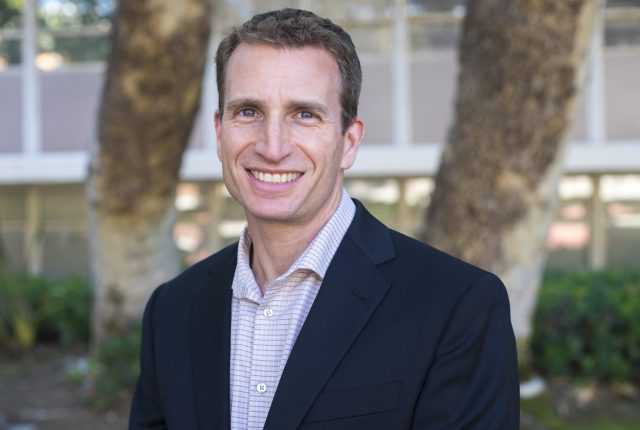
Professor of Comparative Literature, Germanic Languages and Jewish Studies; Chair of Digital Humanities Program
Are you a UCLA Alumni?
Not a UCLA Alumni, I did my undergraduate work in the Program of Literature at Duke University and then I did a graduate study in Comparative Literature at Stanford and I also did graduate study in Art History in Berkeley.
Is there something in particular this department exhibited that you liked compared to other departments at other schools?
Well I am technically in the German Department and affiliated faculty in the Comparative Literature Department and in fact that affiliation is very important to me because most of my work is interdisciplinary, transnational and translinguistic and that’s important I think for Comparative Literature, but it is also important for the current German Program. I should also say that my scholarship is a cross media form and so I also work in both film, visual culture, and digital media.
What classes do you teach here at UCLA?
I primarily teach classes in intellectual history, cultural studies, and digital humanities. So, I work in German Jewish Intellectual History from the Enlightenment to the present, I teach courses that study German Jewish literature and culture, the history of the Holocaust, on theoretical issues coming out of the Holocaust around witnessing and resistance, and the Introduction to Digital Humanities for graduate students. I’ve developed a number of courses that deal with Digital Archives and Genocide Testimony which is around my recent research.
What would you say to prospective students to convince them to enter the department?
Comparative Literature is an opportunity to explore literature, culture, languages across the world and really delve into both cultural specificity and its an opportunity to ask really hard questions about human beings, humanity, and culture in society. It’s a chance to engage with those questions on both a theoretical level but also a pragmatic level and so far as learning one’s language and partaking in the opportunity to study abroad and really learn from being immersed in a language and a culture that’s not one’s own. To me that’s one of the most exciting opportunities to participate in comparative literature.
Is there anything else in general you would like to add about the department?
In terms of my connection to the department, one of the opportunities students would have if they took a class with me is delve into a new area called the digital humanities which uses computational tools, digital media, web based tools, to investigate cultural and social issues and so that might take the form of visualization, mapping, network analysis, algorithmic criticism which is to understand how algorithms operate and to critique them from within so to understand how technology can be read like when one reads a text to understand code as a kind of text and to really think through the humanistic implications of new technologies and that’s an area that I specifically work in and would hope students may be drawn too.

